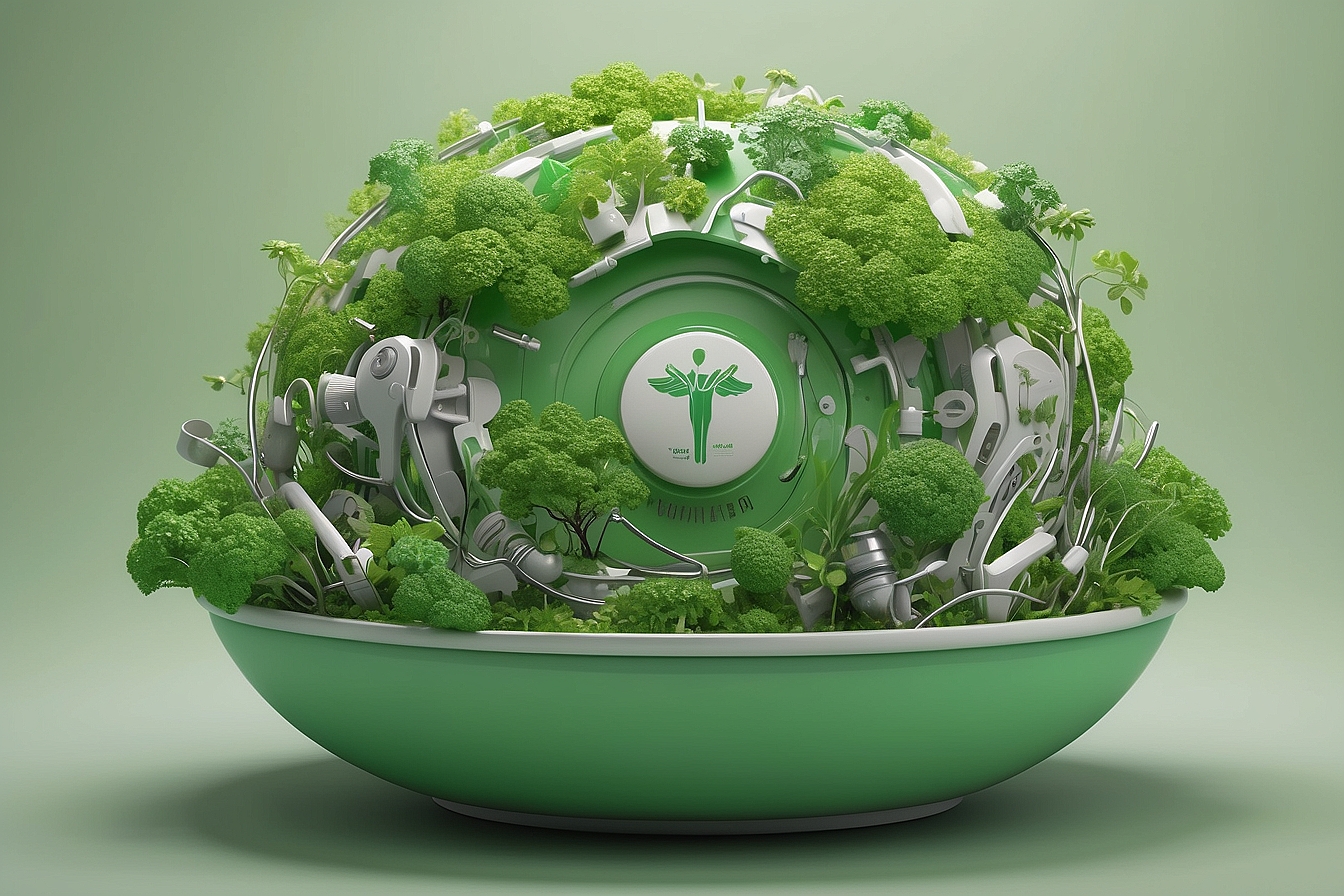We all strive for a healthier diet, but sometimes the produce we find on supermarket shelves leaves much to be desired. You’re not alone in noticing that fruit and veg can lose some of their nutritional charm after languishing in storage for too long.
Our guide is poised to shed light on how cultivating your own garden bounty could greatly enhance its nutritional prowess— and it’s not just about what lands on your fork. Carry on reading, as we unearth the wholesome advantages of embracing gardening for wellbeing right from our very own patches of green.
Key Takeaways
- Homegrown fruits and vegetables are richer in vitamins, minerals, and antioxidants than those bought from shops due to their freshness.
- By growing your own produce, you can avoid harmful pesticides and chemicals, leading to healthier food consumption.
- Freshly picked homegrown produce has a superior taste and preserves more nutrients as there’s less time between harvest and eating.
- Gardening at home can improve mental well – being by providing stress relief and a sense of achievement from growing food.
- Choosing homegrown options reduces environmental impact through lower carbon emissions related to transport and storage.
Nutritional Benefits of Homegrown Produce
Homegrown produce offers higher nutrient content and fewer exposure to harmful chemicals, providing a fresher and healthier option for consumption.
Higher nutrient content
Growing our own produce means we can enjoy fruits and vegetables that are packed with more vitamins, minerals, and antioxidants compared to those bought from the store. When we pick them right from our garden, these nutrient-rich foods haven’t lost any of their valuable properties through long transport or extended shelf life.
They deliver a powerful punch of essential micronutrients straight to your plate.
We ensure every bite is as beneficial as possible by avoiding harmful pesticides and choosing organic farming methods. The result? Food that not only tastes better but also contributes significantly to our health.
With this fresher approach, we move seamlessly onto discussing how less exposure to chemicals enhances the quality of homegrown goodness.
Less exposure to chemicals
Growing your own produce also means less exposure to harmful chemicals. You have control over the pesticides and fertilisers used, allowing you to opt for organic and natural methods.
This reduces the risk of consuming harmful residues present on store-bought produce. By choosing homegrown fruits and vegetables, we can limit our intake of synthetic chemicals, prioritising our health and promoting sustainable living practices.
Enjoying locally sourced food from your backyard or garden ensures that you are consuming fresh, nutrient-rich produce without unnecessary chemical contamination.
Fresher produce
Growing your own produce ensures that you have access to the freshest fruits and vegetables possible. Harvesting straight from your garden or backyard means minimal time between picking and consuming, preserving the maximum nutritional value of your produce.
This fresher produce not only tastes better but also contains higher levels of essential vitamins, minerals, and antioxidants compared to store-bought options.
Additionally, homegrown fruits and vegetables are at their peak ripeness when picked, providing optimal flavour and texture while avoiding nutrient loss due to prolonged storage or transportation.
Mental Health Benefits
Enjoying the process of growing your own produce can bring a sense of accomplishment and stress relief. Additionally, mindful eating of fresh homegrown fruits and vegetables can positively impact mental health.
Sense of accomplishment
Growing your own produce gives us a tremendous sense of accomplishment and pride. Harvesting fresh fruits and vegetables nurtured from seeds or saplings that we planted and cared for brings immense satisfaction.
Witnessing the literal fruits of our labor not only boosts self-esteem but also encourages a deeper connection with nature and our food sources.
Being able to nurture a plant from seed to harvest provides us with an incredible feeling of achievement, fostering an appreciation for the effort required in producing nutritious, organic food.
This satisfaction motivates us to continue cultivating our home garden, contributing positively to our mental well-being as well as providing high-quality, nutrient-rich produce for ourselves and others.
Stress relief
Growing your own produce is not only beneficial for your physical health but can also contribute to stress relief. Engaging in gardening activities allows us to immerse ourselves in a calming environment, providing a break from the hustle and bustle of daily life.
Cultivating plants and witnessing their growth gives a sense of achievement that can help reduce anxiety and promote mental well-being.
The act of tending to homegrown produce provides an opportunity for mindfulness, allowing you to focus on the present moment and appreciate the simple pleasures of nature. Embracing this hands-on approach to food cultivation can be an effective tool for managing stress levels while fostering a deeper connection with the natural world.
Mindful eating
Mindful eating involves being present and fully engaged with the experience of consuming food. It includes paying attention to the taste, texture, and aroma of each bite. By cultivating a mindful approach to eating homegrown produce, we can savour the flavours and appreciate the effort put into growing our own nutritious fruits and vegetables.
This practice encourages us to slow down, chew thoroughly, and truly enjoy every mouthful in a sustainable way.
Eating mindfully also promotes gratitude for the food on our plate as well as awareness of portion sizes. This often leads to reduced overeating while ensuring that we are obtaining essential nutrients from our homegrown produce.
Physical Health Benefits
Homegrown produce provides a higher intake of fruits and vegetables, lower risk of chronic diseases, and better quality food. Read on to discover the many ways homegrown produce can benefit your physical health.
Higher intake of fruits and vegetables
Eating homegrown fruits and vegetables ensures a higher intake of essential nutrients for our bodies. This produce is packed with vitamins, minerals, and antioxidants that contribute to overall health and well-being.
Enjoying nutrient-rich food straight from the garden provides a direct source of plant-based nutrition, supporting a balanced and healthy lifestyle.
Homegrown produce allows us to incorporate more fruits and vegetables into our daily diet effortlessly. With easy access to fresh, organic options right in our backyard or kitchen garden, we can enjoy farm-to-table eating without compromising on nutritional value or taste.
Lower risk of chronic diseases
Consuming homegrown produce, rich in nutrients from regular consumption of fruits and vegetables, reduces the risk of chronic diseases. By cultivating our own nutrient-rich food, we increase our intake of essential vitamins and minerals that boost our immune system and overall health.
This simple shift towards farm-to-table eating empowers us to take charge of what goes into our bodies, contributing to a healthier lifestyle while minimising the risk of developing long-term illnesses.
Growing organic produce at home allows us to have better control over the quality of food we consume daily. Harvesting fresh, chemical-free fruits and vegetables not only fortifies our physical well-being but also grants us peace of mind knowing that we are nourishing ourselves with wholesome ingredients.
Better quality food
Growing your own produce at home means you have control over the quality of the food you eat. You can ensure that no harmful chemicals or pesticides are used in the growing process, providing you with nutrient-rich and organic fruits and vegetables straight from your garden to your table.
By being mindful of sustainable farming practices, we can enjoy fresher, more flavoursome, and nutritious foods while reducing our carbon footprint.
Opting for home-grown produce also means minimal transportation time between harvest and consumption. This preserves the nutritional value of the food as it reaches your plate at its peak freshness, ensuring better overall quality compared to store-bought alternatives.
Sustainable Living
Reduced carbon footprint and control over growing methods are just a few of the sustainable living benefits of homegrown produce. Consider the positive impact on the environment and your own health in choosing farm-to-table eating.
Reduced carbon footprint
Growing your own produce at home significantly reduces our carbon footprint. By eliminating the need for transportation from farm to store, we cut down on emissions and fossil fuel usage associated with shipping.
Furthermore, homegrown produce saves energy by not requiring refrigeration during transit or storage, reducing our overall environmental impact.
With fewer chemicals and pesticides being used in the growing process, home gardening promotes a healthier ecosystem. This reduces pollution in water sources and protects biodiversity in surrounding areas.
Buying local also supports smaller-scale farmers who tend to use more sustainable farming methods compared to industrial agriculture. Our conscious choices today can lead to a greener tomorrow.
Control over growing methods
Homegrown produce provides us with the opportunity to have control over growing methods. We can choose to cultivate our fruits and vegetables organically, without the use of harmful chemicals or pesticides.
This ensures that we are consuming nutrient-rich food while contributing to sustainable living by reducing our carbon footprint. When we grow our own produce, we have the power to make decisions about how it is cultivated, enabling us to embrace a farm-to-table approach and promote plant-based nutrition.
Furthermore, having control over growing methods allows us to prioritise eco-friendly practices such as composting and water conservation. By taking charge of the cultivation process, we can actively contribute towards creating a healthier and more environmentally conscious community.
Conclusion
In conclusion, homegrown produce offers higher nutrient content, less exposure to chemicals and fresher produce. It also provides mental health benefits such as a sense of accomplishment, stress relief and mindful eating.
Additionally, the physical health benefits include a higher intake of fruits and vegetables, lower risk of chronic diseases and better quality food. Sustainable living is promoted through reduced carbon footprint and control over growing methods.
Overall, incorporating homegrown produce into your diet contributes to a healthier lifestyle while supporting conservation efforts.
FAQs
1. Why is homegrown produce better for my health?
Homegrown produce offers higher nutritional value because it’s fresh and you can grow it organically without harmful chemicals, giving you nutrient-rich food that supports healthy eating habits.
2. Can backyard gardening provide economic benefits as well as nutritional ones?
Yes, backyard gardening not only supplies farm-to-table, plant-based nutrition but also saves money on grocery bills by growing your own fruits and vegetables.
3. How does the nutritional content of homegrown fruits and vegetables compare to store-bought?
Fruits and vegetables from your garden are often more nutrient-rich than those bought from a store because they’re consumed closer to their harvest time, ensuring maximum freshness and nutritional benefits.
4. What makes farm-to-table eating so important for my diet?
Farm-to-table eating means enjoying food straight from your garden which ensures you receive the full spectrum of nutrients since the produce hasn’t lost vital minerals or vitamins through long transportation or storage periods.





